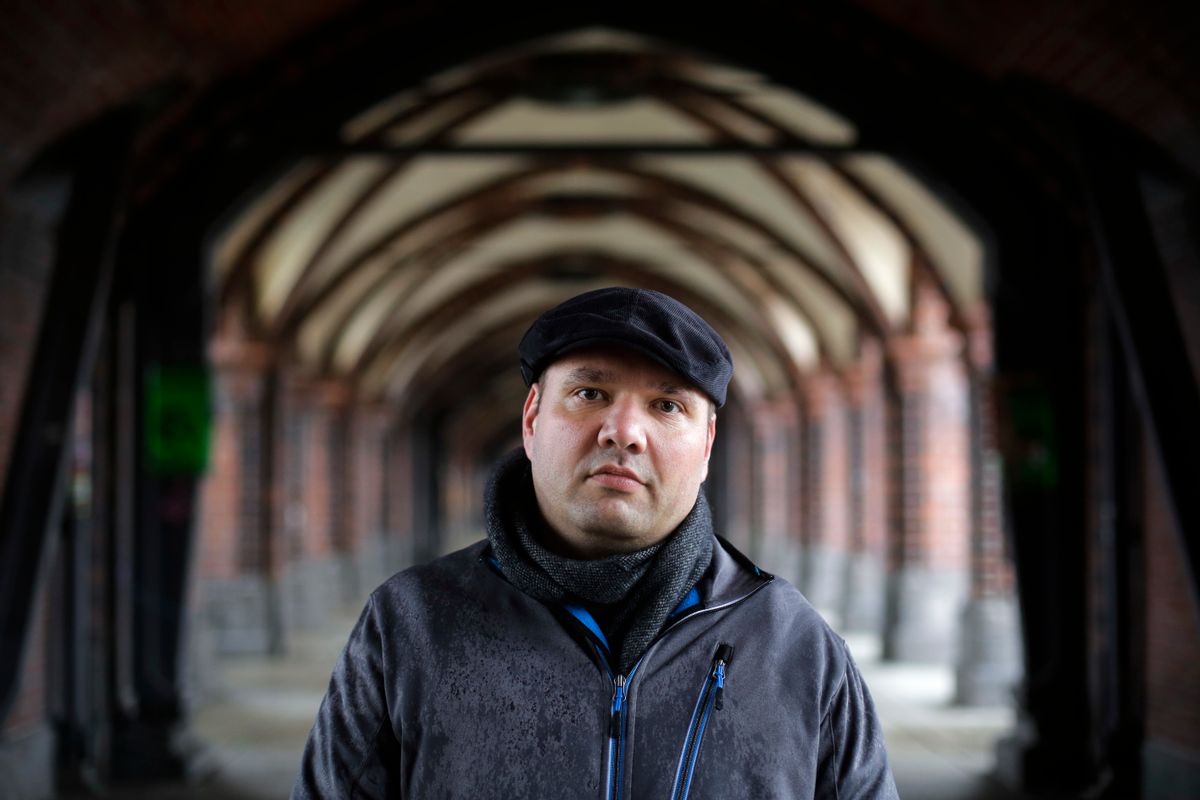BERLIN — Felix Benneckenstein was a rising star on Germany's far-right scene, a young songwriter whose rousing guitar anthems made white nationalism sound romantic and rebellious.
But when fellow neo-Nazis attacked a friend and Benneckenstein, still in his early 20s, found himself in jail, the doubts he'd ignored for years came to the surface.
"It was a rude awakening," he recalled. "You have an idea of what's wrong with the world and believe you've discovered hidden truths . . . And to then realize that everything you've done to yourself and others in the past years was built on lies is a bitter moment."
After almost a decade on the far-right fringes, Benneckenstein is now part of a small but effective network of former neo-Nazis helping people to leave the scene. Spread across Germany, they work closely with an organization called EXIT that provides quick, unbureaucratic advice to extremists who want out.
At a time when extreme nationalism is on the rise in Europe again, EXIT has helped hundreds of neo-Nazis start a new life, according to its founder Bernd Wagner, a former East German police detective. Some of those answering the hotline at EXIT, which has a sister organization in the United States, have dropped out of the far-right movement themselves.
These former neo-Nazis call themselves the 'Action Group' and try to meet in person at least once a year. The meetings aren't advertised, and journalists aren't invited because some members fear their identity could be revealed to friends and colleagues unaware of their past. Last month The Associated Press received unprecedented access to the group's two-day retreat at a former police training center tucked away in a wood in the eastern state of Saxony — notorious for its strong far-right presence.
About a dozen people — mostly young, mostly male — came to talk about their past and brainstorm ways to reach out to those still inside the neo-Nazi scene.
"It does a lot for people that they can talk about the old days, not like old warriors who've won battles but about the mistakes they made in their lives," said Wagner. "They're still looking for direction in a highly complex and diverse reality."
People who join the far right typically share a common history: an early interest in politics, a feeling that they were outsiders or underdogs, and anger at what they regarded as injustice around them.
Benneckenstein was 13 when he came into contact with white nationalism. At first it was more teenage rebellion than genuine sympathy that drew him to the extreme right.
"I found the Nazi scene abhorrent. My little brother has Down Syndrome and of course I knew what happened to disabled people under Hitler," he recalled.
But Benneckenstein enjoyed the music his new friends were listening to, and like many young Germans, he felt his generation was being unfairly penalized for their grandparents' mistakes. He fell for historical revisionism, to the extent of denying the Holocaust.
"I wanted to rid myself of a certain guilt one has because of Germany's history," he said.
Soon his friends were bombarding him with information. First they radicalized him, and then he radicalized others. Going by the stage name 'Flex,' he composed nationalist songs that included lines such "Am I criminal because I want to change the world" and "I'm ready to rise up against everything that stands in our way."
Some of those in his circle were arrested for planning to bomb a Jewish center in Munich. Benneckenstein insists he was never involved in organized violence, though it was seen as a legitimate response to attacks from left-wing demonstrators. "If you want to be part of it, as I did, you have to be able to use violence," he said.
When his friends were attacked, Benneckenstein, who resembles a young Matt Damon, called EXIT. He and his girlfriend left the far-right movement. Since then he has become the go-to guy for remorseful neo-Nazis in Germany's southern state of Bavaria.
First contact requires trust on both sides, as well as a willingness to hear the other side out. For people who are ready to quit the far right immediately, the group helps them leave quietly.
"Then there are the others who get in touch and want to talk through the whole ideology, which is also an important step," he said. "Because if they contact me they are contacting a traitor."
The current situation in Germany has given greater importance to the work of the Action Group, which has almost 40 members. The country has seen a surge in attacks against migrants, and far-right groups have claimed that the government is intentionally trying to import foreigners to weaken or even abolish the German population.
Two years ago, the Action Group made headlines when it got the public to 'sponsor' a far-right march. The stunt caught the neo-Nazis off guard: for every meter (yard) they marched, ten euros (dollars) were donated to an anti-Nazi campaign. The group followed up last year by soliciting donations to anti-hate speech organizations for each racist post on Facebook.
To former neo-Nazis like Benneckenstein, recent political developments are worrying.
"I'm hardly concerned by the refugees, but I am concerned by the mood that's resulting from this," he said. "Everyone can see how the political picture in Germany is changing at the moment."



Shares